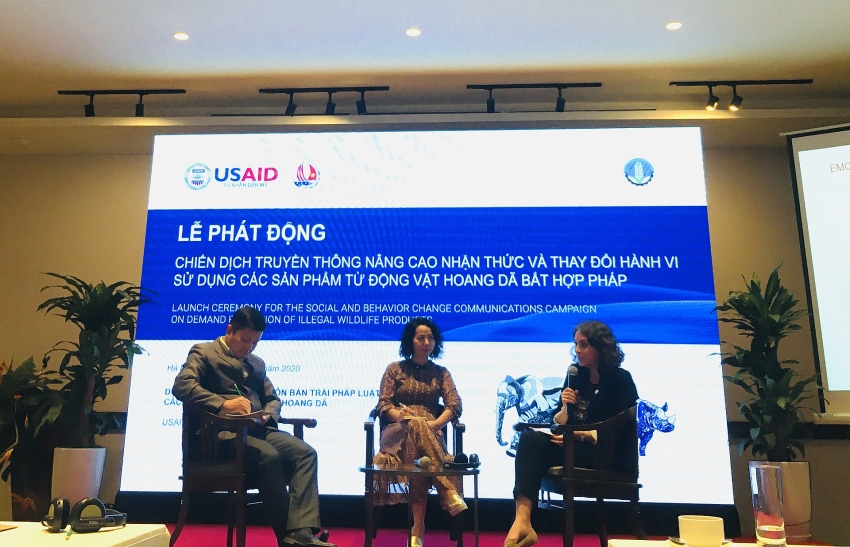USAID takes swing at changing behaviours about using illegal wildlife products
 |
| USAID will encourage people to stop using illegal wildlife products |
On November 17, the US Agency for International Development (USAID), CITIES Vietnam, and the Ministry of Agriculture and Rural Development (MARD) organised the launching ceremony for the social and behaviour change communications campaign on demand reduction of illegal wildlife products.
The strategy is implemented as both the sellers and users of these products have inadequate awareness about the regulations and fines for the illegal use of wildlife products. A study implemented by USAID in 2018 showed that 50 per cent of sellers and users of rhino horn, elephant tusks, and pangolin scales did not know these products were illegal to use.
Thus, the Organising Board aims to improve people's awareness of the reduction of using illegal wildlife products via thorough communications strategies in 2020-2021.
In the first period, USAID and related agencies will focus on spreading messages relating to the penalties for wildlife trafficking by introducing fines of up to VND15 billion ($652,170) and prison sentences of up to 15 years to traffickers selling, transporting, and using these products.
In the following period, they will emphasise that the myths about the usage of these products are scientifically ungrounded. Accordingly, along with spreading messages, USAID will co-operate with medical and pharmaceutical universities, as well as oriental medicine clinics to clarify this groundless trust.
Tran Quang Bao, vice director of Department of Forestry under the MARD said, “The demand for wildlife products has led to illegal trafficking, thus it is necessary to change the behaviours and the demand of users and it will take a long time for this change. Illegal wildlife product trafficking must be added to the list of serious, organised, cross-border crime.”
Christine Gandomi, deputy director of the Program Development Office for USAID Vietnam said illegal wildlife trafficking has reached alarming levels in Vietnam. In the first quarter of this year, 23 instances of illegal poaching were reported, 240 traffickers were arrested, and 400 kilogrammes of rhino horns were confiscated.
“The US government will cooperate with Vietnam to prevent illegal trafficking and consumption. Via these communications programmes, we believe we can make people more aware and encourage them to say no to these products,” Christine Gandomi.
What the stars mean:
★ Poor ★ ★ Promising ★★★ Good ★★★★ Very good ★★★★★ Exceptional
 Tag:
Tag:
Related Contents
Latest News
More News
- Tet event in Japan celebrates success of 14th National Party Congress (January 25, 2026 | 10:04)
- 14th National Party Congress wraps up with success (January 25, 2026 | 09:49)
- Congratulations from VFF Central Committee's int’l partners to 14th National Party Congress (January 25, 2026 | 09:46)
- List of newly-elected members of 14th Political Bureau announced (January 23, 2026 | 16:27)
- 14th Party Central Committee unanimously elects To Lam as General Secretary (January 23, 2026 | 16:22)
- List of members of 14th Party Central Committee announced (January 23, 2026 | 09:12)
- Highlights of fourth working day of 14th National Party Congress (January 23, 2026 | 09:06)
- Press provides timely, accurate coverage of 14th National Party Congress (January 22, 2026 | 09:49)
- Press release on second working day of 14th National Party Congress (January 22, 2026 | 09:19)
- Minister sets out key directions to promote intrinsic strength of Vietnamese culture (January 22, 2026 | 09:16)



























 Mobile Version
Mobile Version